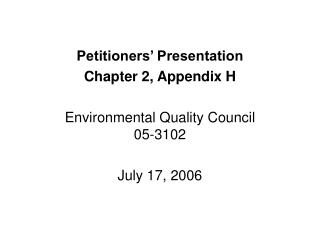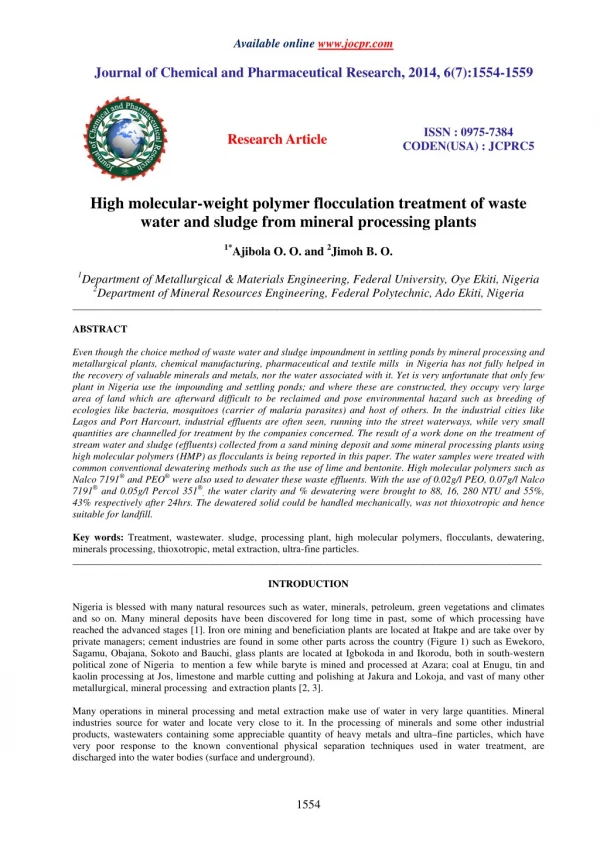High molecular-weight polymer flocculation treatment of waste water and sludge from mineral processing plants
Even though the choice method of waste water and sludge impoundment in settling ponds by mineral processing and metallurgical plants, chemical manufacturing, pharmaceutical and textile mills in Nigeria has not fully helped in the recovery of valuable minerals and metals, nor the water associated with it. Yet is very unfortunate that only few plant in Nigeria use the impounding and settling ponds; and where these are constructed, they occupy very large area of land which are afterward difficult to be reclaimed and pose environmental hazard such as breeding of ecologies like bacteria, mosquitoes (carrier of malaria parasites) and host of others. In the industrial cities like Lagos and Port Harcourt, industrial effluents are often seen, running into the street waterways, while very small quantities are channelled for treatment by the companies concerned. The result of a work done on the treatment of stream water and sludge (effluents) collected from a sand mining deposit and some mineral processing plants using high molecular polymers (HMP) as flocculants is being reported in this paper. The water samples were treated with common conventional dewatering methods such as the use of lime and bentonite. High molecular polymers such as Nalco 7191® and PEO® were also used to dewater these waste effluents. With the use of 0.02g/l PEO, 0.07g/l Nalco 7191® and 0.05g/l Percol 351® , the water clarity and % dewatering were brought to 88, 16, 280 NTU and 55%, 43% respectively after 24hrs. The dewatered solid could be handled mechanically, was not thioxotropic and hence suitable for landfill.
★
★
★
★
★
121 views • 6 slides





